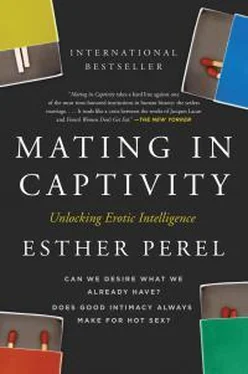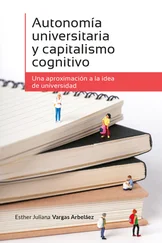And what is true for human beings is true for every living thing: all organisms require alternating periods of growth and equilibrium. Any person or system exposed to ceaseless novelty and change risks falling into chaos; but one that is too rigid or static ceases to grow and eventually dies. This never-ending dance between change and stability is like the anchor and the waves.
Adult relationships mirror these dynamics all too well. We seek a steady, reliable anchor in our partner. Yet at the same time we expect love to offer a transcendent experience that will allow us to soar beyond our ordinary lives. The challenge for modern couples lies in reconciling the need for what’s safe and predictable with the wish to pursue what’s exciting, mysterious, and awe-inspiring.
For a lucky few, this is barely a challenge. These couples can easily integrate cleaning the garage with rubbing each other’s back. For them, there is no dissonance between commitment and excitement, responsibility and playfulness. They can buy a home and be naughty in it, too. They can be parents and still be lovers. In short, they’re able to seamlessly meld the ordinary and the uncanny. But for the rest of us, seeking excitement in the same relationship in which we establish permanence is a tall order. Unfortunately, too many love stories develop in such a way that we sacrifice passion so as to achieve stability.
So What Is It I Want?
Adele comes into my office holding half a sandwich in one hand and some paperwork she’s doing on the fly in the other. At thirty-eight, she is a well-established lawyer in private practice. She’s been married to Alan for seven years. It is a second marriage for both of them, and they have a daughter, Emilia, who’s five. Adele is dressed simply and elegantly, though she’s been meaning to get to the hairdresser for a while now and it shows.
“I want to get right to it,” she says. “Eighty percent of the time I’m happy with him. I’m really happy.” Not a minute to waste for this organized and accomplished woman. “He doesn’t say certain things; he doesn’t gush; but he’s a really nice guy. I pick up the newspaper, and I feel fortunate. We’re all healthy; we have enough money; our house has never caught on fire; we don’t have to dodge bullets on the way home from work. I know how bad it can be out there. So what is it I want?
“I look at my friend Marc, who’s getting divorced from his third wife because, he says, ‘She doesn’t inspire me.’ So I ask Alan, ‘Do I inspire you?’ and you know what he says? ‘You inspire me to cook chicken every Sunday.’ He makes a fantastic coq au vin and you know why? Because he wants to please me; he knows I like it.
“So I’m trying to figure out what it is that I miss. You know that feeling you have the first year, that fluttery, exciting feeling, the butterflies in your stomach, the physical passion? I don’t even know if I can get that anymore. And when I bring this up to Alan, he gets this face. ‘Oh, you want to talk about Brad and Jen again?’ Even Brad Pitt and Jennifer Aniston got tired of each other, right? I’ve studied biology; I know how the synapses work, how overuse lessens the reaction; I get that. Excitement wanes, yeah yeah yeah. But even if I can’t have that fluttery butterfly feeling, I want to feel something.
“The realistic part of me knows that the excitement in the beginning is because of the insecurity in not quite knowing what he’s feeling. When we were dating and the phone rang the reason it was exciting was that I didn’t know it would be him. Now when he travels I tell him not to call me. I don’t want to be woken up. The more intelligent part of me says, ‘I don’t want insecurity. I’m married. I have a kid. I don’t need to worry every time he leaves town: Does he like me? Does he not like me? Is he going to cheat?’ You know those magazine tests: How to tell if he really loves you. I don’t want to worry about that. I don’t need that with my husband right now. But I’d like to recapture some of that excitement.
“By the end of a long day at work, taking care of Emilia and cooking a meal, cleaning up, checking things off my list, sex is the farthest thing from my mind. I don’t even want to talk to anyone. Sometimes Alan watches TV and I go into the bedroom to read and I am very happy. So what is it I’m trying to put into words here? Because I’m not just talking about sex. I want to be appreciated as a woman . Not as a mother, not as a wife, not as a companion. And I want to appreciate him as a man . It could be a gaze, a touch, a word. I want to be looked at without all the baggage.
“He says it goes both ways. He’s right. It’s not like I put on my negligee and go hubba hubba. I’m lazy in the ‘make me feel special’ department. When we first met I bought him a briefcase for his birthday—something he saw in a store window and loved—and it had two tickets to Paris inside. This year I gave him a DVD and we celebrated with a couple of friends by eating a meat loaf his mother had made. Nothing against meat loaf, but that’s what it’s come to. I don’t know why I don’t do more. I’ve become complacent.”
Adele, in her breathless riff, vividly captures the tension between the comfort of committed love and its muting effect on erotic vitality. Familiarity is indeed reassuring, and it brings a sense of security that Adele would never dream of giving up. At the same time, she wants to recapture the quality of aliveness and excitement that she and Alan had in the beginning. She wants both the coziness and the edge, and she wants them both with him.
The Era of Pleasure
Not so long ago, the desire to feel passionate about one’s husband would have been considered a contradiction in terms. Historically, these two realms of life were organized separately—marriage on one side and passion most likely somewhere else, if anywhere at all. The concept of romantic love, which came about toward the end of the nineteenth century, brought them together for the first time. The central place of sex in marriage, and the heightened expectations surrounding it, took decades more to arrive.
The social and cultural transformations of the past fifty years have redefined modern coupledom. Alan and Adele are beneficiaries of the sexual revolution of the 1960s, women’s liberation, the availability of birth control pills, and the emergence of the gay movement. With the widespread use of the pill, sex became liberated from reproduction. Feminism and gay pride fought to define sexual expression as an inalienable right. Anthony Giddens describes this transition in The Transformation of Intimacy when he explains that sexuality became a property of the self, one that we develop, define, and renegotiate throughout our lives. Today, our sexuality is an open-ended personal project; it is part of who we are, an identity, and no longer merely something we do. It has become a central feature of intimate relationships, and sexual satisfaction, we believe, is our due. The era of pleasure has arrived.
These developments, in conjunction with postwar economic prosperity, have contributed to a period of unmatched freedom and individualism. People today are encouraged to pursue personal fulfillment and sexual gratification, and to break free of the constraints of a social and family life heretofore defined by duty and obligation. But trailing in the shadow of this manifest extravagance lies a new kind of gnawing insecurity. The extended family, the community, and religion may indeed have limited our freedom, sexual and otherwise, but in return they offered us a much-needed sense of belonging. For generations, these traditional institutions provided order, meaning, continuity, and social support. Dismantling them has left us with more choices and fewer restrictions than ever. We are freer, but also more alone. As Giddens describes it, we have become ontologically more anxious.
Читать дальше










